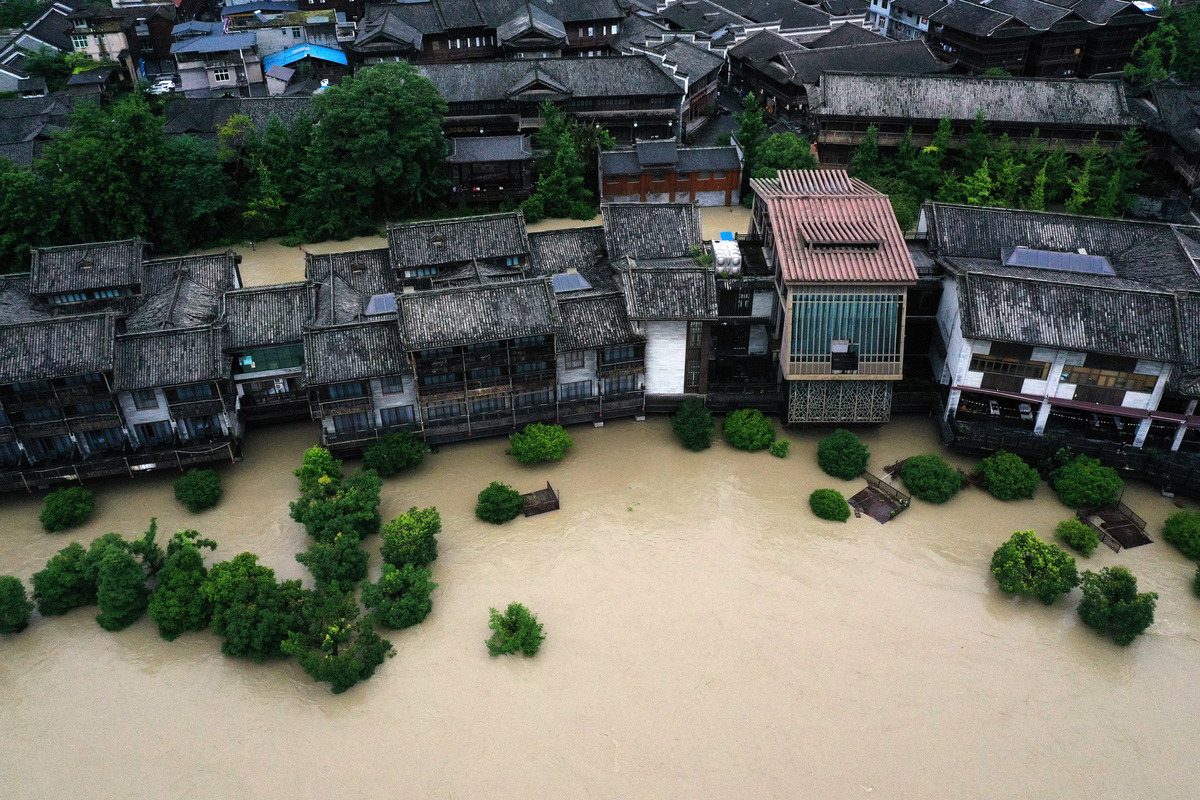Protecting heritage sites a priority


"Floodwaters have been a major threat to the safety of Chinese cultural heritage throughout history," Song said. "And these old bridges, city walls and houses often have a poor capacity to counter disasters due to the lasting influence of natural erosion and human activities.
"Ancient Chinese architecture is usually made of wood, tiles and bricks. When reservoirs in the upper reaches discharge waters, these heritage sites cannot withstand the impact of torrents."
Ancient bridges have borne the brunt of the recent flooding, with 70 such heritage sites damaged. In Huangshan, Anhui province, a stone-arch bridge first built in 1536 and rebuilt and renovated several times over the centuries collapsed again. In Wuyuan county, Jiangxi province, a covered bridge first built during the Song Dynasty (960-1279) and most recently rebuilt in the 18th century was also left in ruins.
Song said more research was needed on flood-proofing technologies for cultural relics.
"Speaking of ancient architecture, cultural heritage experts and architects have usually focused on studying their layout, historical context and the structure of components," he said. "However, their capacity to withstand natural disasters has often received less attention, and we have thus lacked a comprehensive system to introduce disaster-prevention technology into renovation work and training programs."
He said the administration will coordinate with different government departments to include the safety of heritage sites in the national disaster prevention and mitigation system, with cultural relics to be treated as "key properties", like human life.
"Once disasters come, more efficient campaigns will be launched to rescue the relics," Song said.
He said a range of modern disaster-prevention technologies and methods will be studied for use in various regions.
Song added that ancient wisdom could also make a valuable contribution.
For instance, the Forbidden City in Beijing, China's former imperial palace, has seldom been flooded since its founding 600 years ago due to its superb sewage system. And the sewage system in the historical neighborhood in Ganzhou, Jiangxi, was designed during the Song Dynasty and still functions well today.
"An important task is to conduct in-depth studies of the extraordinary capacities of ancient Chinese cities and take full advantage of those functions today," he said.





































